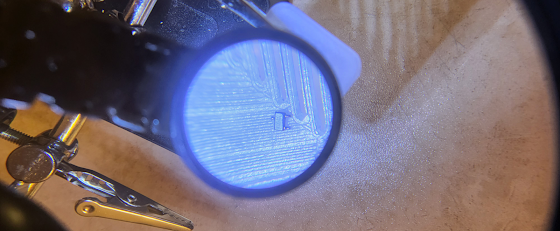::
::
:: In order to prepare the certificate please run
:: 'certutil -encode the_pfx_cert base_64_cert`
:: then paste the base_64_cert in the section below
:: Please note that the certificate password has to be given as start paramater to this script!
:: (eq: "cert-inst.bat S3cr3tPassw0rd")
:: If the cert was already installed, exit
REG QUERY HKCU\SOFTWARE\neXt /v CertInstalled
If %errorlevel%==0 goto :eof
:: define the temp name of the extracted cert
set extractedfile=%temp%\extract-%random%.txt
:: set the password needed to decode the cert
set certpasswd=%~1
:: separate the cert from this script
call:extractembedded embeddedfile %extractedfile%
:: process the extracted file
certutil -decode %extractedfile% %extractedfile%.pfx
certutil -f -user -p %certpasswd% -importpfx %extractedfile%.pfx
:: clean-up
::del %extractedfile% %extractedfile%.pfx
:: leave a trace in the registry, so the cert will not be installed again and again
REG ADD HKCU\SOFTWARE\neXt /v CertInstalled /t REG_DWORD /d 1
:: clean exit
exit /b
:: begin of the embed cert & extraction procedure
:: After the next line, please paste the "base_64_cert" created by certutil -encode
goto:embeddedfile
-----BEGIN CERTIFICATE-----
MIIMngIBAzCCDGQGCSqG
[...]
k05EzAQIFXJaGHOuxZcCAggA
-----END CERTIFICATE-----
:embeddedfile
:: before the previous line you can find the end of the "base_64_cert"
:: cert extraction procedure
:extractembedded
setlocal EnableDelayedExpansion
set embedbegin=goto:%~1
set embedend=:%~1
set embedcert=%~2
if exist %embedcert% del %embedcert%
set tmprndfile=%temp%\%random%.%random%
findstr /n ^^ "%~f0" > %tmprndfile%
call :seekembed < %tmprndfile%
del %tmprndfile%
exit /B
:seekembed
set oneline=:eof
set /P oneline=
if !oneline! == :eof goto nostart
set oneline=!oneline:*:=!
if not !oneline! == %embedbegin% goto seekembed
:getline
set oneline=:eof
set /P oneline=
if !oneline! == :eof goto nostop
set oneline=!oneline:*:=!
if !oneline! == %embedend% goto :eof
echo/!oneline!>> %embedcert%
goto getline
:nostart
echo Error finding start delimiter %embedbegin%
goto :eof
:nostop
echo Error finding stop delimiter %embedend%
goto :eof
